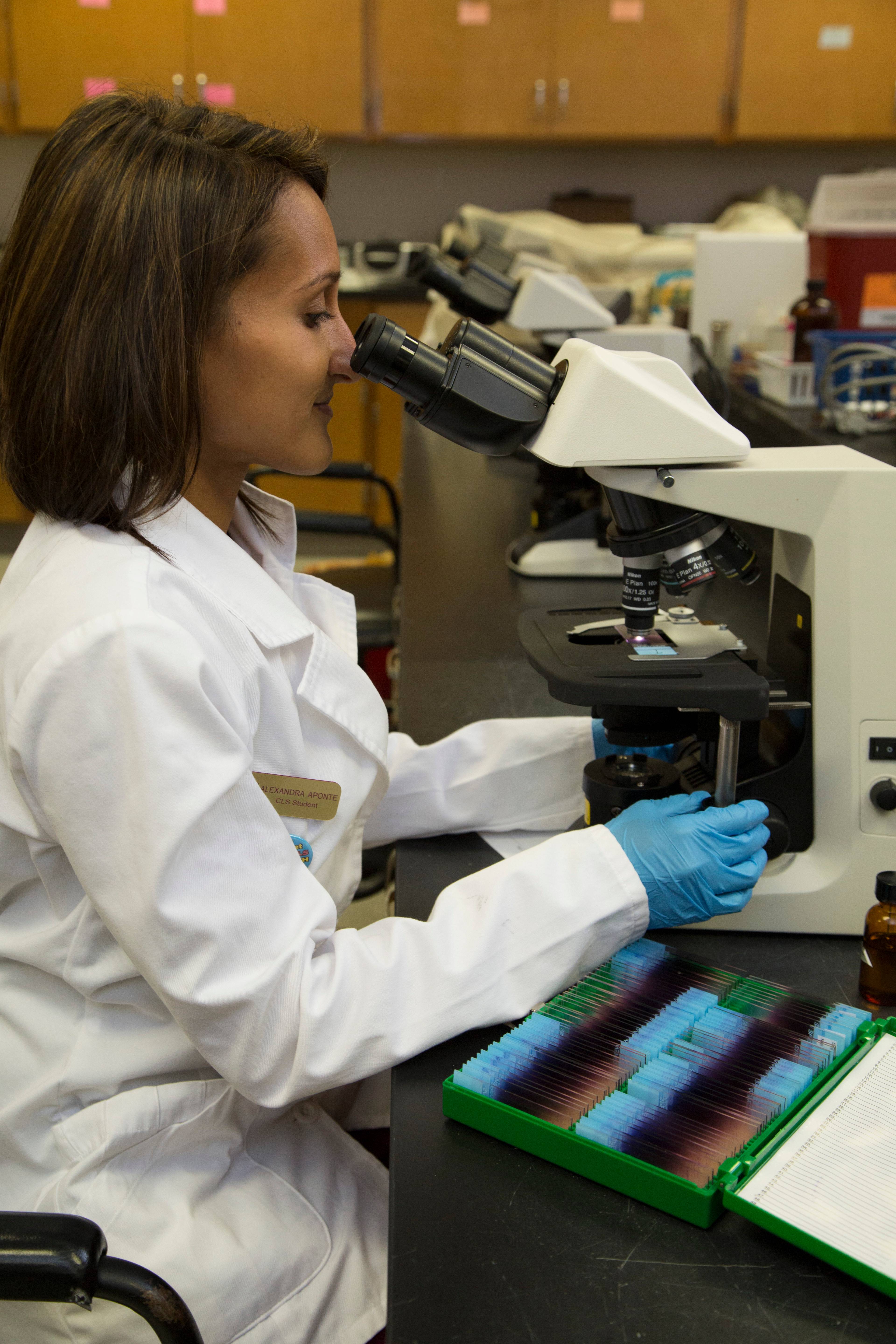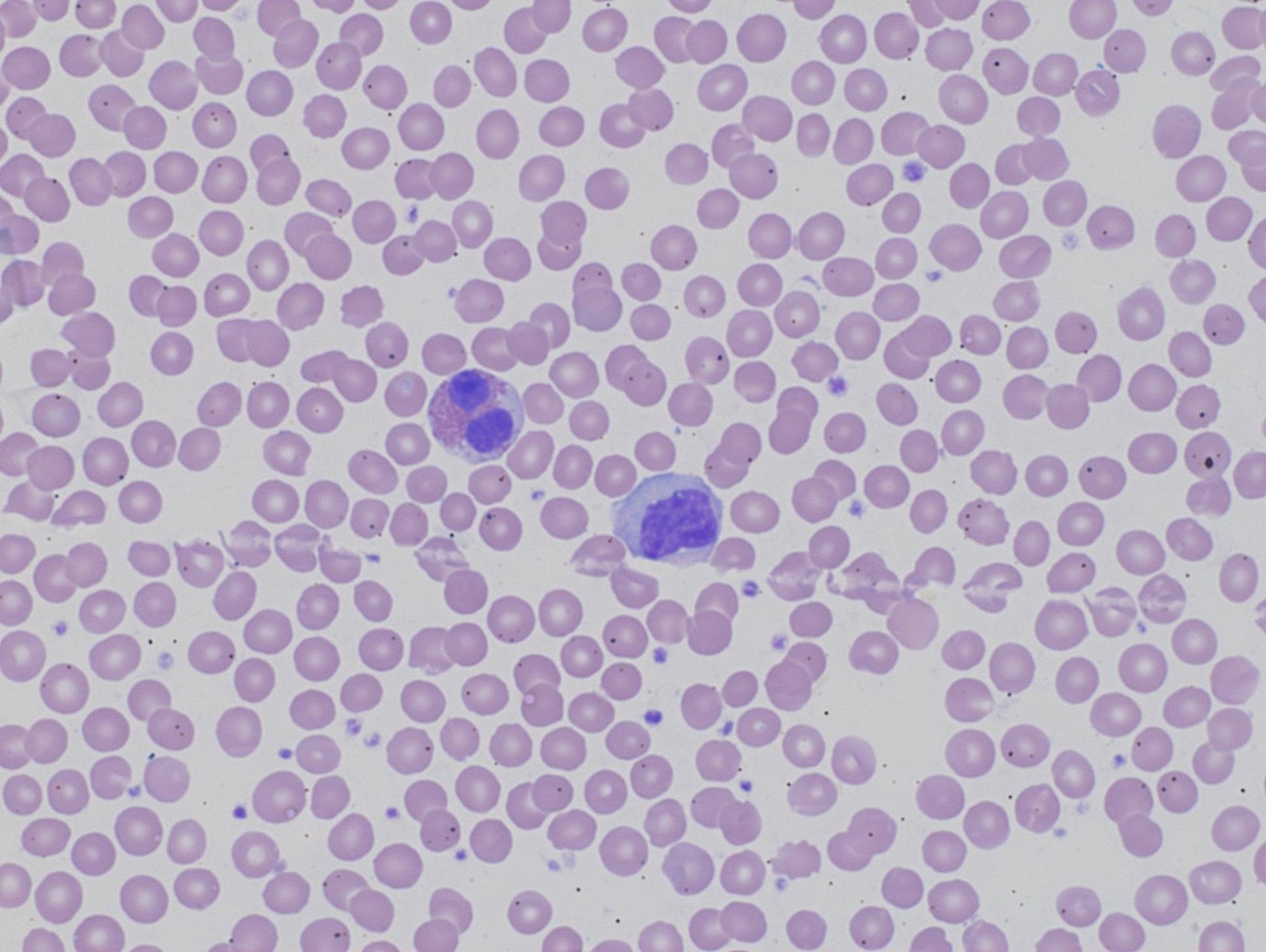Hematology/Coagulation Checklist

Hematology/Coagulation Clinical Rotation
Objectives, Expectations, and Competency Checklist
HEMATOLOGY/COAGULATION COMPETENCY CHECKLIST
OBJECTIVES:
After completion of coursework and this clinical experience, the MLS student will be able to:
- Record patient test data in appropriate logs; if available, use a computer-managed data system.
- Prepare thin blood smears with feathered edges and evenly distribute cells.
- Accurately identify and classify white blood cells, estimate the number and quality of platelets, identify normal and abnormal blood cell morphology on a Wright’s stained blood smear.
- Follow written procedures and accurately perform and interpret the following tests:
- Set up and read an ESR
- Dilute, charge hemacytometer, count, and classify the white blood cells of a spinal fluid and other body fluids
- Differential on cerebrospinal fluid and other body fluids
- Prothrombin time
- Activated partial thromboplastin time
- Quantitative fibrinogen
- D-dimer
- Operate the following instruments and obtain accurate results:
- Automated slide stainer, if available
- Automated hematology analyzer
- Automated coagulation analyzer
- Perform routine cleaning, start-up, and shut down procedures on an automated hematology analyzer(s).
- Discuss the calibration procedures(s) for automated hematology analyzer(s).
- Observe bone marrow aspiration/biopsy procedure is available.
- Correlate and evaluate hematology and coagulation test results with other clinical findings when appropriate, with other laboratory data.
- Observe proper security precautions involving confidential patient information.
- Develop skills in computer assisted data management systems as applied to the department.
- Observe and participate in quality assurance practices of the department.
* If test(s) not ordered within rotation period or not a routine procedure, the clinical instructor will review the procedure with the student pointing out special requirements, pitfalls, and method of reporting results.
EXPECTATIONS (of Texas State MLS students)
- Review the objectives for the hematology rotation before you go on the rotation (and, it doesn’t hurt to take them with you to check off what you’ve done or haven’t done).
- Review the Peripheral Blood and Urinalysis programs on Medtraining
- Review your Hematology Atlas with you and use it when you’re performing differentials; have a notebook handy to jot down important things so you don’t have to be told more than once.
- If you haven’t notified your rotation site, be sure to do so early to let them know you are coming and to find out what time you are to be there, where to park, clothing, and any other concerns you have.
- Be ON TIME, wear your scrubs if you have them (you can also take a lab coat, but many places will provide that), take your student TX State name tag, student handbook/review book, notify your lab contact and us if you are not going to make it because of sickness, emergency, etc.
- ON THE JOB-Observe universal precautions at all times; be attentive and proactive in your learning; ask if you don’t understand something but try not to “nag” (in other words, you shouldn’t have to ask how to put slides on the slide stainer five times in the first hour J); show interest and enthusiasm; do not get caught up in lab/office politics/personnel feuds/etc.
- Every clinical site is a little different; try to be intuitive with the “workflow” and culture of the lab; you only have an opportunity to be there 3 weeks so try to fit in
- This is YOUR opportunity to network with future employers and all of our sites communicate with each other about you and your peers….so, treat this like a 3-week interview!
- Learn from the different CLS that you are around. Many of them have years of practical experience and “tricks of the trade” that are hard to show in a teaching lab on campus.
- Do not be afraid of repetition. The more experience you have with chemistry instrumentation and evaluating quality control data, the better. This is important. It will help you on your rotation exam and on your certification exam.
- Stay for the entire “shift”; be courteous and grateful to our clinical sites as we rely on them for future rotation; YOU are representing not only yourself but TEXAS STATE and the MLS program.
